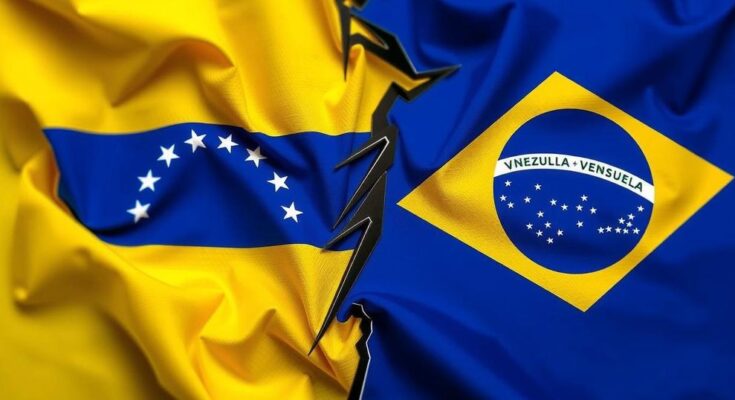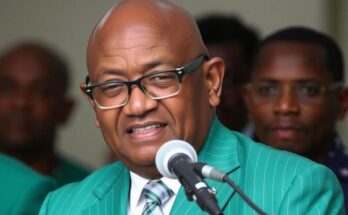Relations between Venezuela and Brazil have soured significantly following Brazil’s rejection of Venezuela’s BRICS membership bid. Critics in Maduro’s government have openly chastised Brazilian officials, leading to a diplomatic standoff marked by retaliatory measures, including Venezuela’s recall of its ambassador.
In recent weeks, tensions between Venezuela and Brazil have escalated following failed attempts by Venezuelan President Nicolás Maduro to join the BRICS group of emerging markets. This aspiration was thwarted by Brazil’s objection, which led to a vehement response from Maduro’s administration. An ally of Maduro publicly criticized Celso Amorim, a senior advisor to Brazilian President Luiz Inácio Lula da Silva, accusing him of prioritizing U.S. interests and being an ineffective representative for Brazil. In retaliation, Venezuela’s foreign ministry announced the recall of its ambassador from Brazil and summoned Brazil’s chargé d’affaires to express its displeasure. During a congressional session, Amorim stated that Brazil believes any new member of BRICS must have significant international standing, a criterion Venezuela purportedly fails to meet. The backdrop for this diplomatic fallout involves Maduro’s recent re-election claims, which lack independent verification, raising concerns among regional leaders about Venezuela’s political stability after a contentious election. Maduro’s frustrations culminated in his declaration that “no one shuts Venezuela up or vetoes it,” indicating his determination to defy perceived external pressures. As Maduro attempts to mend relations with other nations who attended the BRICS summit in Kazan, Russia, Brazil has taken a sharper stance against his administration, particularly in its response to human rights criticisms. The Brazilian leadership’s decision to exclude Venezuela from the bloc has resulted in escalating diplomatic rhetoric, further complicating the already fraught relationships in the region.
The BRICS coalition, comprising emerging economies such as Brazil, Russia, India, China, and South Africa, seeks to enhance economic cooperation and development. Venezuela’s aspirations to join this group follow a political landscape marked by controversy and unrest, particularly after its most recent presidential elections, which have been widely disputed. Under the Maduro administration, Venezuela has faced international sanctions and criticism over its governance and human rights record, complicating its international relations. Brazil’s current government, led by President Lula, aims to prioritize stability and international relations based on democratic principles, thus influencing its position on Venezuela’s potential admission into BRICS.
In conclusion, the diplomatic ties between Venezuela and Brazil have deteriorated significantly due to Brazil’s veto of Venezuela’s membership in BRICS, culminating in harsh rhetoric from Maduro’s government. This situation underscores rising tensions related to Venezuela’s political legitimacy and human rights practices, with Brazil adopting a more critical stance. As regional dynamics evolve, the fallout from these actions may have lasting implications for relations within South America and beyond.
Original Source: www.livemint.com




